Book urgent care & walk-in clinics near me in Washington, DC
Own a clinic? Add your location.
Help patients book appointments with you on Solv. It's free!
21 instant-book locations

The Convenient Clinic
The Convenient Clinic
Today
View more
Medics USA, Dupont Circle Urgent Care
Medics USA
Today
View more
Privia Virtual Clinic, DC
Privia Virtual Clinic
Today
View more
Vista Medical Center, Crystal City
Vista Medical Center
Today
View more
Inova- GoHealth Urgent Care, Ballston
Inova- GoHealth Urgent Care
Today
View more
Vista Medical Center, North Arlington
Vista Medical Center
Today
View more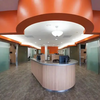
Inova- GoHealth Urgent Care, Seminary Plaza
Inova- GoHealth Urgent Care
Today
View more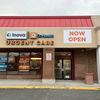
Inova- GoHealth Urgent Care, Seven Corners Center
Inova- GoHealth Urgent Care
Today
View more
Inova- GoHealth Urgent Care, McLean
Inova- GoHealth Urgent Care
Today
View more
Inova- GoHealth Urgent Care, Birch And Broad
Inova- GoHealth Urgent Care
Today
View more
Fast Track Urgent Care, Kensington
Fast Track Urgent Care
Today
View more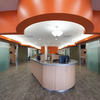
Inova- GoHealth Urgent Care, South Alex
Inova- GoHealth Urgent Care
Today
View more
Access Now Urgent Care, Wheaton
Access Now Urgent Care
Today
View more
Vista Medical Center - Annandale, (Formerly Annandale Pediatrics)
Vista Medical Center - Annandale
Today
View more
Fast Track Urgent Care, Silver Spring
Fast Track Urgent Care
Today
View more
tru Primary & Urgent Care (truHealthNow), Alexandria
tru Primary & Urgent Care (truHealthNow)
Today
View more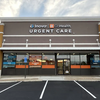
Inova- GoHealth Urgent Care, Backlick Center
Inova- GoHealth Urgent Care
Today
View more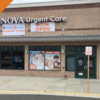
Inova- GoHealth Urgent Care, Vienna
Inova- GoHealth Urgent Care
Today
View more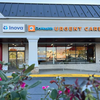
Inova- GoHealth Urgent Care, Pickett
Inova- GoHealth Urgent Care
Today
View more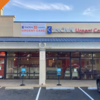
Inova- GoHealth Urgent Care, West Springfield
Inova- GoHealth Urgent Care
Today
View more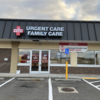
AFC Urgent Care, Burke
AFC Urgent Care
Today
View moreOwn a clinic? Add your location.
Help patients book appointments with you on Solv. It's free!
Washington DC urgent care
What is urgent care?
Urgent care is a category of walk-in clinic focused on the delivery of immediate, non-life-threatening care in a dedicated medical facility outside of a traditional emergency room. Urgent care centers primarily treat injuries or illnesses requiring immediate care, but not serious enough to require an ER visit. They are convenient and cost-effective alternatives to emergency rooms, and typically have extended hours of operation, including weekends and holidays.
Common services and reasons for visit
Urgent care centers provide a wide range of services that cover most common health issues. These include but are not limited to:
Minor fractures, sprains, strains, and injuries
Minor cuts, burns, and wounds
Acute illnesses such as colds, flu, fever, and infections
Diagnostic services, including X-rays and laboratory tests
Physical examinations and health screenings
Vaccinations and immunizations
Management of chronic diseases such as diabetes and hypertension
Patients typically visit urgent care centers when they can't wait for a scheduled appointment with their primary care physician, but the condition is not severe enough to warrant a visit to the emergency room.
Types of healthcare providers
At an urgent care center, you may encounter various types of healthcare providers, each with a specific role and level of training.
Physicians: These are medical doctors (MDs) or doctors of osteopathic medicine (DOs) who have completed medical school and residency training. They diagnose and treat illnesses, prescribe medications, and may perform minor procedures.
Nurse Practitioners (NPs): NPs are registered nurses with additional training and education, often at the master's or doctoral level. They can diagnose and treat conditions, prescribe medications, and may manage patient care.
Physician Assistants (PAs): PAs are medical professionals who diagnose illness, develop and manage treatment plans, prescribe medications, and often serve as a patient’s principal healthcare provider. They train on the medical model and they work in collaboration with a physician.
Registered Nurses (RNs): RNs provide and coordinate patient care, educate patients about various health conditions, and provide advice and emotional support to patients and their family members.
Medical Assistants (MAs): MAs perform routine clinical and administrative tasks to keep the offices and clinics of physicians, podiatrists, chiropractors, and optometrists running smoothly.
Radiologic Technologists: These professionals perform diagnostic imaging examinations, such as x-rays, on patients.
When to go to an urgent care
Urgent care centers are designed to provide immediate, non-emergency care for minor illnesses and injuries that can't wait for a regular doctor's appointment, but aren't severe enough to require a trip to the emergency room. This includes conditions such as minor fractures, sprains, cuts and burns, ear infections, urinary tract infections, and other common illnesses like the flu or strep throat. Urgent care centers are typically open seven days a week, with extended hours into the evenings, making them a convenient option for those who need medical attention outside of regular office hours.
Urgent care vs emergency room (ER)
While both urgent care centers and emergency rooms provide immediate care, they are designed to treat different levels of medical issues. Emergency rooms are equipped to handle life-threatening conditions such as heart attacks, strokes, severe wounds, or any condition that may require surgery. Urgent care centers, on the other hand, are ideal for minor injuries and illnesses that need immediate attention but are not life-threatening. Additionally, urgent care centers typically have shorter wait times and lower costs compared to emergency rooms.
Urgent care vs primary care
Primary care doctors are typically the first point of contact for most healthcare needs. They provide preventive care, treat common illnesses, and manage chronic conditions. However, they usually operate on a schedule and may not be available for immediate, unscheduled care. Urgent care centers fill this gap by providing immediate care for non-life-threatening conditions outside of regular office hours. While they do not replace the role of a primary care doctor, they can be a convenient alternative when immediate care is needed and your primary care doctor is not available.
Urgent care vs retail clinic
Retail clinics, often found in pharmacies or supermarkets, provide basic healthcare services for common illnesses like colds and flu, minor injuries, and preventive care such as vaccinations. They are typically staffed by nurse practitioners or physician assistants. Urgent care centers, on the other hand, are equipped to handle a wider range of conditions, including more serious injuries and illnesses. They also typically have a doctor on-site and offer more advanced diagnostic and treatment options. While both can be convenient options for immediate, non-emergency care, the choice between the two often depends on the severity of the condition.
Urgent Care Centers in Washington, DC
Washington, DC, is home to a diverse array of urgent care centers, providing quality healthcare services to residents and visitors alike.
Finding Nearby Urgent Care
In the nation's capital, you'll find numerous urgent care centers conveniently located throughout the city. Whether you're in a bustling neighborhood or a quiet community, there's likely a center nearby.
Urgent Care in Capitol Hill
Capitol Hill is not just the political hub of the city, but also hosts a number of urgent care centers. These facilities cater to the busy professionals and families residing in this area, providing prompt and efficient healthcare services.
Urgent Care in Georgetown
Georgetown, known for its historic charm and vibrant shopping district, is also home to several urgent care centers. These centers offer a range of healthcare services to cater to the diverse needs of this community.
Virtual Urgent Care
For those who prefer the convenience of online consultations, virtual urgent care options are also available in Washington, DC. This allows residents to receive medical attention from the comfort of their homes.
Selecting a Clinic
When choosing an urgent care clinic, consider factors such as the clinic's location, hours of operation, the healthcare providers' qualifications, and the services offered. Reviews and ratings can also provide insight into the patient experience at the clinic. Additionally, make sure the clinic accepts your insurance plan to avoid unexpected costs.
Booking Same-Day and Next-Day Appointments
Many urgent care centers in Washington, DC offer the convenience of same-day and next-day appointments. This allows you to receive timely medical attention, especially when your primary care doctor is unavailable. You can often book these appointments online or over the phone.
Discovering DC Healthcare with Solv
Solv simplifies your search for urgent care in Washington, DC. With Solv, you can find local urgent care centers, view their ratings and reviews, and book same-day or next-day appointments. We aim to make healthcare access easier and more convenient for you, ensuring you can get the care you need when you need it.
What to Expect with Your Visit
When seeking urgent care in Washington, DC, it's essential to know what to expect during your visit. The process typically includes preparing for your visit, what happens during the visit, follow-up care and communication, and understanding cost and insurance details. Each of these steps is crucial to ensure a smooth and successful urgent care experience.
Preparing for Your Visit
Before your urgent care visit, there are a few things you can do to prepare. Firstly, gather all relevant medical information. This includes your medical history, any medications you're currently taking, and details of your current health issue. If you have health insurance, remember to bring your insurance card. It's also a good idea to bring a form of identification and a method of payment for any potential out-of-pocket costs.
During Your Visit
During your urgent care visit, you'll first check-in at the front desk, where you'll provide your identification, insurance information, and details of your health concern. After this, you'll be seen by a healthcare provider. They will review your medical history, perform a physical examination, and determine the appropriate treatment for your condition. Depending on your situation, you may also undergo diagnostic tests such as X-rays or lab tests.
Follow-Up Care and Communication
After your visit, you may need follow-up care. This could include a follow-up appointment, additional tests, or a referral to a specialist. The urgent care center will communicate with you about these next steps, often through a secure patient portal or via phone. It's important to follow these instructions to ensure your health issue is fully addressed.
Cost and Insurance Details
Understanding the cost of urgent care is important. The average out-of-pocket cost for basic care at an urgent care center ranges from $71 to $125. This can increase with additional services like shots, X-rays, and lab tests. In comparison, a similar visit to the emergency room averages around $1,318. Most urgent care centers accept insurance, as well as Medicare and Medicaid, which can significantly reduce these costs. Always check with the urgent care center about their accepted forms of payment and insurance.
Best Urgent Care in Washington, DC
Washington, DC is home to several highly-rated urgent care centers that cater to the varying needs of its residents. PM Pediatric Urgent Care, located at 3100 14th St NW, is a top-rated facility with a 4.72 rating based on 224 reviews. This center is renowned for its pediatric-focused care, making it an ideal choice for families in the city.
Another notable provider is AllCare Primary & Immediate Care, which operates three facilities within the city. The first one is at 315 H St NE, which has a 4.67 rating from three reviews. The other two locations, at 811 2nd St SE and 4340 Connecticut Ave NW, have perfect 5.0 ratings with two reviews each. These centers are known for their comprehensive primary and immediate care services, and their multiple locations provide convenient access for residents across the city.
Lastly, The Convenient Clinic, located at 1160 Varnum St NE, lives up to its name with a 4.58 rating from 26 reviews. This clinic is appreciated for its convenient services and friendly staff, making it a reliable choice for urgent care.
These urgent care centers, while varying in their areas of specialization, all share a common commitment to providing quality care. Reviews for these facilities frequently highlight their professional and compassionate staff, efficient service, and clean, comfortable environments. Whether you're in need of pediatric care, primary care, or simply seeking immediate attention, these clinics stand out as the best urgent care options in Washington, DC.

Updated on Feb 25, 2026
Urgent Care FAQs
What is urgent care?
Urgent care is a healthcare service focused on providing immediate, non-life-threatening medical attention. Urgent care centers treat conditions such as sprains, cuts, burns, and common illnesses and offer a range of services, including diagnostic and preventive care like immunizations and physicals. With an estimated 15,000 clinics in the U.S., urgent care centers operate beyond traditional primary care office hours, offering a convenient and lower cost alternative to emergency rooms for urgent but minor health issues.
What is a walk-in clinic?
A walk-in clinic is a type of healthcare facility that provides medical care to patients without the need for an appointment. These clinics cover a range of services such as urgent care, occupational medicine, and primary care with walk-in availability. They cater to non-emergent health issues, offering a convenient option for accessible medical attention. Walk-in clinics vary from free services provided by government, charity, or foundation-operated facilities to private clinics with affordable rates, serving as a practical alternative for minor illnesses and injuries outside of traditional doctor's offices and emergency rooms.
Do urgent care centers in Washington take appointments?
Historically, urgent care centers were strictly an on-demand, walk-in healthcare service. More recently, as consumer behaviors and expectations have evolved, many urgent care clinics have begun offering book ahead visits, allowing consumers to select a same-day or next-day time that works best for their schedule. Use Solv to find a Washington urgent care center that offers advanced bookings (or appointments) and book online.
Are Washington urgent care centers open after hours?
Yes. Most primary care doctor offices are open during routine work hours, Monday thru Friday, 9:00 am to 5:00 pm. Conversely, most of the urgent care centers in Washington are available after hours, on weekends, and many holidays. Typical urgent care hours are 8:00 am to 8:00 pm daily, although location-specific hours may vary.
How much will an urgent care visit in Washington cost?
The cost of a visit to an urgent care in Washington varies, with cash prices for the base visit generally ranging from $100 to $175. Additional treatments, such as lab tests, X-rays, or immunizations, can increase costs, typically between $50-150 each. If you're using insurance, expect a co-pay between $20 and $50, depending on your plan and whether the clinic is in-network. Prices differ based on location, so it's best to check directly with the urgent care center and your insurance provider for accurate cost estimates.
Related Searches
RSV Test in Washington, DC
TB Test in Washington, DC
Urinalysis in Washington, DC
Pediatric Urgent Care in Washington, DC
A1C Test in Washington, DC
Diagnostic Test in Washington, DC
Sports Physicals in Washington, DC
Pulmonary Function Test in Washington, DC
Lab Tests in Washington, DC
Ear Wax Removal in Washington, DC
Glucose Test in Washington, DC
H Pylori Test in Washington, DC
Diabetes Test in Washington, DC
Cholesterol Test in Washington, DC
Thyroid Test in Washington, DC
COVID-19 Pill in Washington, DC
Strep Test in Washington, DC
Hepatitis test in Washington, DC
Flu Test in Washington, DC
DNA Test in Washington, DC
COVID-19 Testing in Washington, DC
CMP Test in Washington, DC
Blood Test in Washington, DC
Mono Test in Washington, DC
Vitamin D Test in Washington, DC
STD Testing in Washington, DC
Drug Test in Washington, DC
Basic Metabolic Panel in Washington, DC
DOT Exam in Washington, DC
Dermatologists in Washington, DC
Retail Clinic in Washington, DC
Allergy Testing in Washington, DC
Pregnancy Test in Washington, DC
Aetna Urgent Care
Blue Cross Blue Shield Urgent Care
Cigna Urgent Care
COVID-19
Flu
United Health Urgent Care
» All services in Washington, DCFind urgent care
Nearby cities
Popular Brands in Washington
Everyday Healthcare, Simplified
Expert advice to help you live your best life







